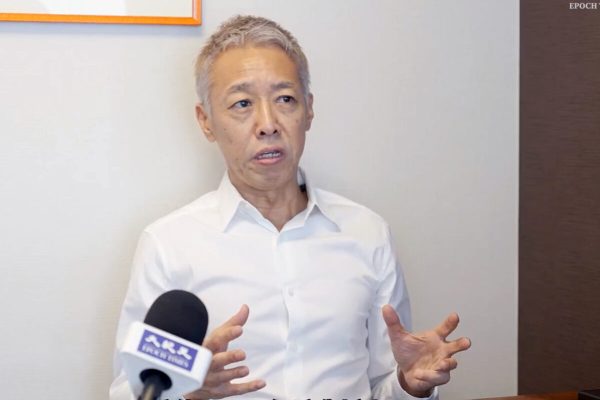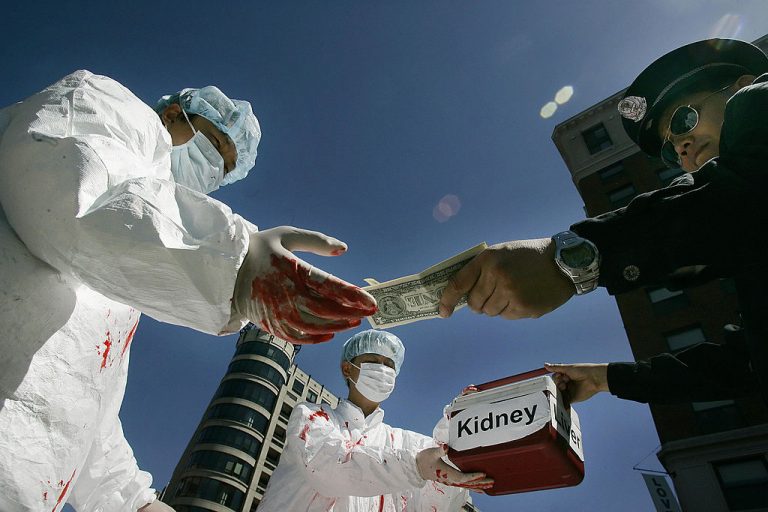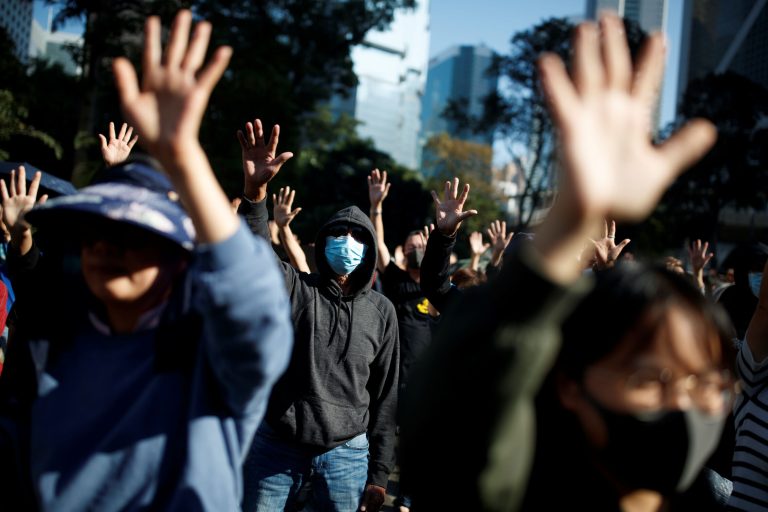In recent decades, Chinese authorities have boasted of their country’s booming transplant industry — which they claim will soon surpass the United States’ medical industry in affordability and accessibility.
However, according to research conducted by a growing number of leading experts in this field, China’s transplant industry also involves a much darker, sinister, and often illegal side to it.
According to the reports, the communist regime has been murdering thousands of jailees kept in concentration camps — most of them prisoners of conscience and other ethnic minorities — in order to harvest their organs and sell them for high prices to local and foreign customers.
MORE ON CHINA’S ORGAN HARVESTING PRACTICES:
- New Report Shows Chinese Doctors Used Organ Harvesting as a Method of Execution
- Chinese Regime Harvests Over 150,000 Organs From Jailed Prisoners Each Year: Expert
- Child and Bride Trafficking in China Linked to Organ Harvesting: Activist Report
Now, a former Japanese criminal gang member, identified as Ushio Sugawara, has come forward to share his experience in witnessing how Chinese surgeons forcefully anesthetized a young man after cutting his tendons in order to prevent him from fleeing, and proceeded to then carve out his liver in an organ harvesting operation.

Sugawara, now 58, told The Epoch Times he witnessed the horrifying incident in August 2007, while he was still a member of the Sixth Yamaguchi-gumi — a yakuza organization known to be Japan’s largest crime syndicate. Sugawara left the gang in 2015 and is now an economic commentator in Japan.
Success
You are now signed up for our newsletter
Success
Check your email to complete sign up
Curious as to why the 21-year-old donor was to be killed, a doctor who spoke Japanese told Sugawara that the man was a “terrorist” and “very bad.”
“He will die sooner or later, and this way, he can make some more contribution before his death.”
But when pressed by Sugawara on what crimes he had committed, the doctor answered that he was “Falun Gong.”
“That was when I realized that China uses prisoners for organ harvesting,” Sugawara said.
Falun Gong, also known as Falun Dafa, is a traditional Chinese spiritual discipline introduced to the public in 1992. In July 1999, the Chinese Communist Party (CCP) began a massive campaign to eradicate the practice after seeing its quick rise in popularity as a threat to its authoritarian rule.
Desperate for a liver
According to Sugawara’s account, one of his friend’s brothers was terminally ill and desperately seeking a liver transplant in order to save his own life. Given the strict regulations, high costs, and long waiting times in the U.S. and France — two of the few countries offering liver transplants at the time — the desperate man had turned to China in what he believed to be his last resort.
At the time, Beijing’s General Hospital of the People’s Armed Police — a state-run military hospital — had risen to become the country’s leading facility for liver transplant surgeries.
A Chinese broker who facilitated medical tourism with Japan put the brother’s friend in touch with the Beijing hospital, according to the Epoch Times report. Within a month, the hospital had located a “suitable donor,” and told the patient to fly to Beijing to have his surgery performed “at any time.”
What was even more shocking about the whole ordeal was the price of the surgery. At only 30 million yen (about US$255,000), the price was not even half of what the U.S. or any country in Europe would have quoted for surgical, anesthesia, and related fees.
When Sugawara asked the hospital’s staff who the transplanted liver belonged to, he was only told that it belonged to a 21-year-old man who was “very healthy.”
Despite the man’s death, the brother of Sugawara’s friend did not survive the transplant operation.
Other witnesses
Though a vast collection of circumstantial evidence exists to back up the claims that the CCP is harvesting organs from Falun Gong adherents and other prisoners of conscience, cases like Sugawara’s where a witness comes forward to describe the crimes first-hand are rare.
In 2009, an Armed Police officer from Jinzhou city in northeastern China’s Liaoning Province witnessed a female Falun Gong practitioner being sexually assaulted and then murdered for her organs.
In a recorded statement, the policeman told the World Organization to Investigate the Persecution of Falun Gong (WOIPFG) — a U.S. based website that documents the ongoing persecution of Falun Gong practitioners in China that, “Without any anesthesia, the scalpel went directly into her chest and blood squirted out. The woman screamed ‘Falun Dafa is good’ before dying.”
The unidentified officer went on to explain that the woman had been a school teacher, and was subjected to all kinds of abuse, torture and humiliation at the hands of prison guards and other inmates. “We have many depraved policemen,” he said, “They used clamps and scopes to sexually abuse her. She was good looking, and they raped her.”
He also described how his superior at the time, police official Wang Lijun, had given orders to “kill and eradicate Falun Gong practitioners.”
According to another witness, the ex-wife of a doctor in northeast China, her then-husband operated on thousands of Falun Gong prisoners, surgically removing their corneas for transplant. That account, given in 2006, was the first direct allegation of organ harvesting by the CCP.
‘Executions by organ removal’
This isn’t the first time accounts of forced organ harvesting on prisoners of conscience and other minorities in China have been reported.
A study released on April 4 by the American Journal of Transplantation alleges that “hundreds of thousands of people” are being targeted and murdered for their organs by surgeons across many hospitals in China.
According to the report, titled Execution by organ procurement: Breaching the dead donor rule in China, much of the publicly available data from the Chinese government suggests that many of the “donors” were not brain dead at the time their organs were harvested, and likely suffered harrowing deaths while being unable to talk or move at the time their organs were surgically removed.
“Our algorithm searched for evidence of problematic declarations of brain death during organ procurement. We find evidence in 71 of these reports, spread nationwide, that brain death could not have properly been declared,” co-authors Matthew P. Robertson and Jacob Lavee wrote in their research.
“In these cases, the removal of the heart during organ procurement must have been the proximate cause of the donor’s death,” Robertson and Lavee said, suggesting that the Chinese regime was engaging in the rampant murder and execution of these prisoners.
The findings, they say, “strongly suggest that physicians in the People’s Republic of China [PRC] have participated in executions by organ removal.”
From Falun Gong to Uyghurs
In a May 12 Congressional hearing, Ethan Gutmann — a senior research fellow on China studies at the Victims of Communism Memorial Foundation, and co-author of “Bloody Harvest” and “The Slaughter” — told U.S. lawmakers that the CCP may be murdering as many as 50,000 concentration camp victims each year in order to sell their organs.
In his research, Gutmann also noted that each healthy individual killed for organ extraction could yield two or three organs — suggesting that the Chinese regime could be selling as many as 150,000 organs from these victims each year.
Widely regarded as a leading expert in the field of China’s organ trade, Gutmann added that some 15 million people residing near the country’s Xinjiang Uyghur Autonomous Region (XUAR) in Western China — including members of the Uyghur Muslim minority group — have undergone medical examinations to check if they were matches for organ transplants.
“This is not sporadic,” he said, adding that China has “created a policy of ethnic cleansing — a potentially very profitable one.”
Although the Chinese regime denies all allegations of genocide and abuse against the country’s Uyghur minority group, activists and human rights groups estimate that more than one million Uyghur Muslims are currently being held against their will via a large network of so-called “re-education camps” across remote parts of the country.














